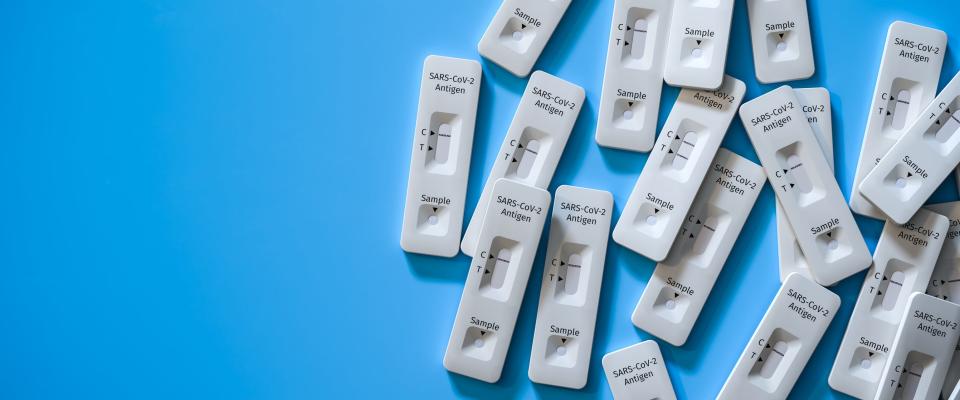COVID stats rise as new variant surges
Tissues and cough medicine may be under your tree this season.
COVID cases and severity is spiking as cold and flu season rages on, and the Centers for Disease Control and Prevention is tracking the circulation of the BA.2.86 variant.
The CDC's late-November Nowcast variant tracker estimates the variant, previously thought to be less frequent, as the third-most common strain, making up about 8.8% of COVID cases in the U.S.
Are COVID cases rising in South Jersey?
New Jersey falls in the CDC's HHS Region 2, along with New York, Puerto Rico and The Virgin Islands. Region 2 Nowcast data estimates the BA.2.86 variant responsible for 13.1% of COVID cases.
Based on data from the New Jersey Department of Health, lab-confirmed COVID cases trended upward this November, starting with 1,125 cases the week ending Nov. 4 and moving to 2,625 the week ending Nov. 25.
There were 10,390 PCR cases between Nov. 1 and Dec. 1, Camden County having the third-highest number of cases in the state — 843 — within the last month.
Burlington County had 583 lab-confirmed cases according to NJDOH, and Gloucester County was close behind at 524.
How long does COVID last? What are the COVID symptoms?
So, what do you need to look out for?
Recent reports have shown that the length of COVID symptoms can vary from person to person and may show up differently depending on strains and variants.
Symptoms usually appear 2-14 days after exposure, according to the CDC, and can appear as the following:
Fever or chills
Cough
Shortness of breath or difficulty breathing
Fatigue
Muscle or body aches
Headache
New loss of taste or smell
Sore throat
Congestion or runny nose
Nausea or vomiting
Diarrhea
The CDC will continue to update its list of COVID symptoms as new strains and variants are studied.
People should seek emergency medical attention if they experience any of the following in relation to COVID-19:
Trouble breathing
Persistent pain or pressure in the chest
New confusion
Inability to wake or stay awake
Pale, gray, or blue-colored skin, lips or nail beds depending on skin tone
More: Cough, cough: It's virus season. How to stay healthy and where to get your vaccines
How do you test for COVID?

Anyone can test for COVID, and they especially should if feeling symptomatic. At home COVID-19 antigen tests should continue to detect different strains as long as they're used properly and not expired.
To check your test expiration dates see here.
Testing for antigen and lab (PCR) COVID tests may have different results. The FDA recommends serial antigen testing: individuals should have two negative antigen tests for individuals with symptoms and three for individuals without, performed 48 hours apart.
People with symptoms should test immediately, while those who have been exposed to the virus but have yet to experience symptoms should wait at least five full days.
Where to get tested for COVID in South Jersey
Beginning on Nov. 20, all U.S. households were made eligible to receive an additional 4 free COVID tests from COVID.gov.
Households that didn't place an order already this fall can receive 8 total tests, completely free with no cost to ship.
If you'd prefer an in-person visit to a local testing center, visit the CDC's testing locator and enter your zip code.
Kaitlyn McCormick writes about trending issues and community news across South Jersey for the Courier Post, The Daily Journal and the Burlington County Times. If you have a story she should tell, email her at kmccormick@gannett.com. And subscribe to stay up to date on the news you need.
This article originally appeared on Cherry Hill Courier-Post: How to test for COVID and what to expect in South Jersey

